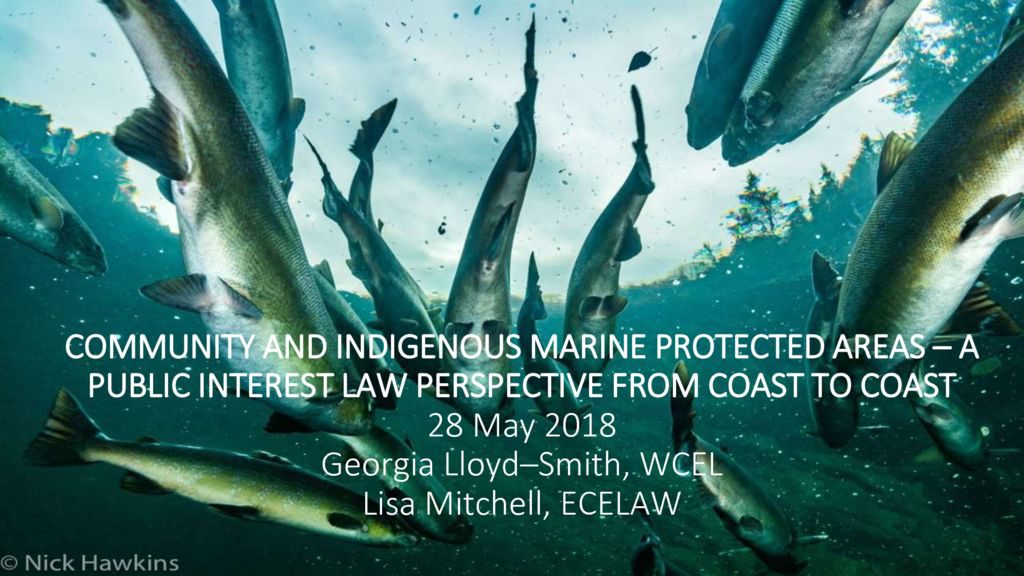14 Mar Community and Indigenous Marine Protected Areas
Marine Protected Areas (MPAs) are one proven way to protect ocean ecosystems and increase fish abundance. But without strong support from Indigenous nations and communities, MPAs may be ignored and risk failure. Our study of experiences from other countries demonstrates that a strong legal foundation is one of the key enabling conditions for ocean protection. While no single factor can be pinpointed as the most effective way to secure marine conservation, law plays a significant role.
Second, Indigenous laws and aboriginal rights and title are critical factors in any discussion of ocean jurisdiction. MPAs can be a vehicle for reconciliation through express provisions that, for example, recognize Indigenous governance rights. Empirical evidence shows that jurisdictions with legislation including provisions for protected area co-management with local or Indigenous communities had a higher rate of park establishment, compared to those without such provisions.
Examples from both coasts will illustrate these points. In April 2015, the Marine Planning Partnership (MaPP) co-led by seventeen coastal First Nations and the Government of BC formally approved marine spatial plans for the BC north coast which emphasize community fisheries as a key direction for the conservation economy. The MaPP protection management zones can accelerate the process of formal ocean protection by establishing scientifically justified candidate sites that embody First Nations, community, and ecological values, and are supported by local communities. The zones need a legal basis to make a difference on the water.
MPA designation affects the fishing community and fishing livelihoods as often new restrictions are imposed on where fish can be caught. In the long run, fish populations can be increased through the effective use of MPAs; however community members affected by MPAs must believe in the legitimacy of the plan. Some MPAs in Atlantic Canada were proposed by the fishing community to protect valuable species that they rely on for sustainable livelihoods, like lobster and golden cod.
Canada is currently renewing its ocean laws and Indigenous nations and coastal community residents have an opportunity to influence the shape of the law and of the governance structures for MPAs that will truly enable community governance and uphold the rights of Indigenous peoples.



